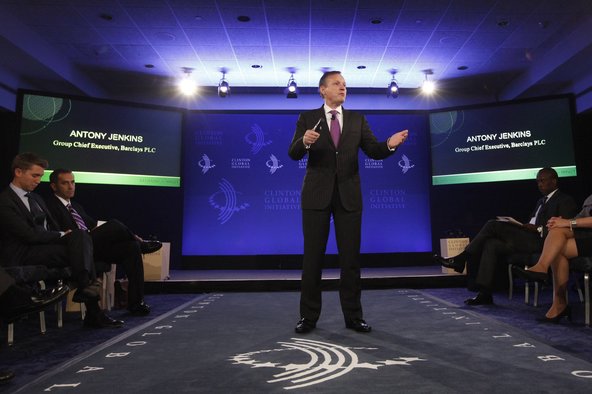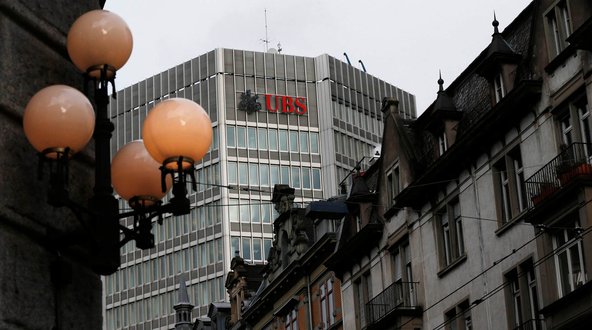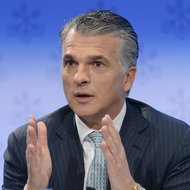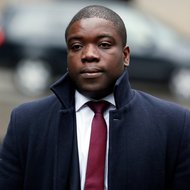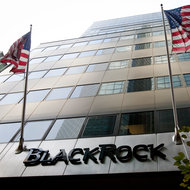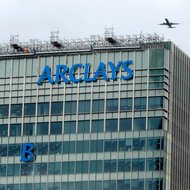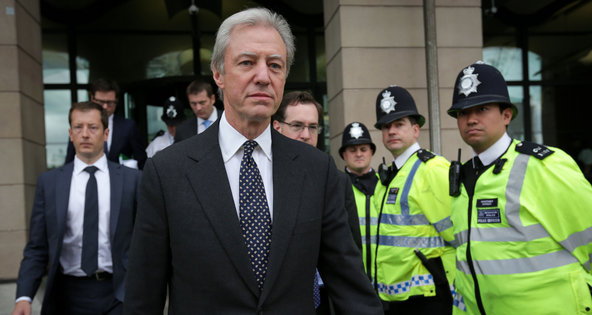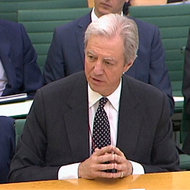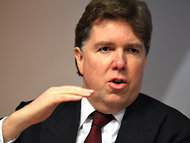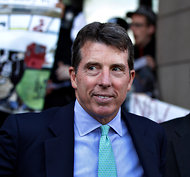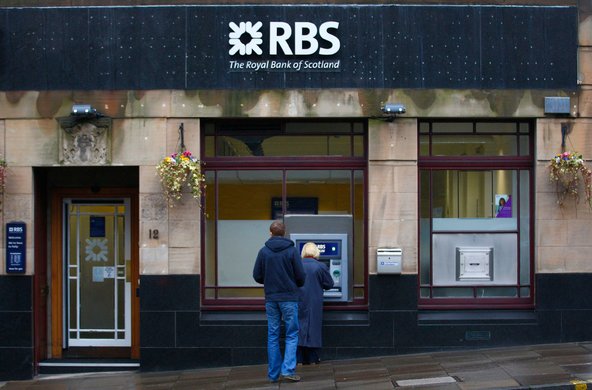 David Moir/ReutersA branch of the Royal Bank of Scotland in Edinburgh.
David Moir/ReutersA branch of the Royal Bank of Scotland in Edinburgh.
LONDON – The Royal Bank of Scotland on Wednesday struck a combined $612 million settlement with American and British authorities over accusations that it manipulated interest rates, the latest case to emerge from a broad international investigation.
In an embarrassing blow to the bank, its Japanese subsidiary also pleaded guilty to criminal wrongdoing in its settlement with the Justice Department. The R.B.S. subsidiary, a hub of rate-rigging activity, agreed to a single count of felony wire fraud to resolve the case.
The settlement reflects the Justice Department’s renewed vigor for punishing banks ensnared in the rate manipulation case. In December, a Japanese subsidiary of UBS pleaded guilty to felony wire fraud as part of a larger settlement, representing the first unit of a big bank to agree to criminal charges in more than a decade.
Related Links
 Document: R.B.S. Announcement
Document: R.B.S. Announcement- The Things Traders Say, R.B.S. Edition
- The Politics of the R.B.S. Settlement
As authorities built the R.B.S. case, they seized on a series of incriminating yet colorful e-mails that highlighted an effort to influence the rate-setting process, a plot that spanned multiple currencies and countries from 2006 to 2010. One senior trader expressed disbelief at reaping lucrative profits from the scheme, saying “it’s just amazing” how rate “fixing can make you that much money,” according to the government’s complaint. Another trader, after pressuring a colleague to submit a certain rate, offered a reward of sorts: “I would come over there and make love to you.”
In a statement on Wednesday, the American regulator leading the case slammed the bank for manipulating benchmarks like the London Interbank Offered Rate, or Libor. The regulator, the Commodity Futures Trading Commission, noted that R.B.S. employees “aided and abetted” UBS and other firms in the rate-rigging scheme and continued to run afoul of the law, though more covertly, even after learning of a federal investigation.
“The public is deprived of an honest benchmark interest rate when a group of traders sits around a desk for years falsely spinning their bank’s Libor submissions, trying to manufacture winning trades. That’s what happened at R.B.S.,” David Meister, the enforcement director of the commission, said in the statement.
Libor Explained
The settlement represents the latest setback for Royal Bank of Scotland, which has struggled to shake the legacy of the 2008 financial crisis. The British firm already has put aside $2.7 billion to compensate customers who were inappropriately sold loan insurance over recent years. On Jan. 31, British regulators also called on the bank and other local rivals to review the sale of interest-rate hedging products after more than 90 percent of a sample were found to have been sold improperly.
The broader rate-rigging case has centered on how much the Royal Bank of Scotland and a dozen other banks, including Citigroup and HSBC, charge each other for loans. Such benchmarks, including Libor, help determine the borrowing costs for trillions of dollars in financial products like corporate loans, mortgages and credit cards.
But the Royal Bank of Scotland, like many of its competitors, corrupted the process. Government complaints filed over the last year outlined a scheme in which banks reported false rates to lift trading profits and deflect concerns about their health during the crisis.
Authorities filed the first Libor case in June, extracting a $450 million settlement with the British bank Barclays. In December, UBS agreed to a record $1.5 billion settlement with European regulators, the Justice Department and the American regulator that opened the case, the Commodity Futures Trading Commission. The Justice Department’s criminal division, which secured the guilty plea from the bank’s Japanese unit, also filed criminal charges against two former UBS traders.
Some of the world’s largest financial institutions remain caught in the cross hairs of the case. Deutsche Bank has set aside an undisclosed amount to cover potential penalties.
While foreign banks have received the brunt of the scrutiny to date, an American institution could be among the next to settle. Citigroup and JPMorgan Chase are under investigation.
In the $612 million Royal Bank of Scotland case, authorities levied the second-largest fine in the multiyear investigation into rate manipulation.
The fine included a $325 million penalty from the trading commission and a £87.5 million ($137 million) sanction from the Financial Services Authority, the British regulator, marking one of the largest financial penalties ever from British authorities. The Justice Department, for its part, imposed a $150 million fine as part of a deferred-prosecution agreement with R.B.S. In addition to wire fraud, the Justice Department cited the bank for its role in a “price-fixing conspiracy” that violated anti-trust laws.
R.B.S., based in Edinburgh, had aimed to avert the guilty plea for its Japanese subsidiary. But the Justice Department’s criminal division declined to back down, and the bank had little leverage to push back. If it had balked at a plea deal, the Justice Department could have moved to indict the subsidiary.
“Like with Barclays and UBS, the settlement with R.B.S. is much more than a slap on the wrist,” said Bart Chilton, a member of the trading commission who is critical of soft fines on big banks.
In the wake of the settlement, Royal Bank of Scotland is shaking up its management team as it moves to repair its bruised image. John Hourican, the firm’s investment banking chief, resigned on Wednesday, and agreed to forgo some of his past and current compensation totaling around $14.1 million. While Mr. Hourican was not implicated in the scandal, senior executives said he was taking blame for wrongdoing in his division.
“John is the right senior person to take responsibility for this,” the bank’s chairman, Philip Hampton, told reporters on Wednesday.
Royal Bank of Scotland, in which the government holds an 82 percent stake after providing a $73 billion bailout in 2008, also plans to claw back bonuses and other long-term compensation totaling $471 million to help pay for the rate-rigging penalty. The bank will will primarily use the figure to pay the fines from U.S. authorities, while penalties from the British regulator will be recycled back to the British government.
At a press conference in central London on Wednesday, Stephen Hester, the bank’s chief executive, condemned the illegal behavior of some of the firm’s employees, but acknowledged that Royal Bank of Scotland did not monitor its Libor submissions closely enough to catch the wrongdoing.
Mr. Hester, who has led the bank through a series of scandals and has been dogged by politicians’ demands for reductions in bonuses, admitted that the rate-rigging episode had placed the bank under a lot of strain.
“It is one of the most difficult moments over the entire period,” he said.
Mr. Hester, a former chief executive of the property developer British Land, has focused on paring back the bank’s operations. The C.E.O. has cut more than 30,000 job cuts since 2008, attempted to spin-off of the mergers and acquisitions unit and cut the size of its balance sheet by £600 billion since 2009. Mr. Hester also waved his $1.5 million bonus for 2011 after coming under pressure from British politicians.
In the Libor case, the wrongdoing at R.B.S. occurred on smaller scale than at other banks. The breach, authorities say, was limited to Libor submitters and traders who sought to bolster their bottom line. By comparison, top executives at Barclays knew the bank was lowballing its Libor rates to assuage concerns about its high borrowing costs.
R.B.S., which admitted that 21 of its employees altered the firm’s Libor submissions for financial gain on hundreds of occasions, either disciplined or fired most of the employees. The rest left before they were implicated. In the UBS case, the trading commission cited more than 2,000 instances of illegal acts involving dozens of employees.
Still, the government complaints against R.B.S. portray a permissive culture that allowed rate-rigging to persist for some four years.
The bank’s own records captured the scheme in striking detail, revealing how traders pressured other employees to submit certain Libor figures. Submitters and traders sat in earshot of each other on a trading desk in London, forming what authorities termed a “cozy ring.”
The bank eventually separated the employees, forcing them to communicate over e-mail and phone. A flurry of instant messages ensued, some more vulgar than others.
A trader noted in September 2009 that his requests for rates moved up and down, “like a whores drawers.” Another employee acknowledged that the Libor rate-setting process is “a cartel now.”
To get their way with employees who submitted Libor rates, traders promised “love” and affection. Others merely offered steak and sushi. One trader resorted to begging, invoking a plea of “pretty please.”
The collusion was not limited to inside Royal Bank of Scotland.
Between 2008 and 2009, the bank’s traders cooperated with other banks, including the Swiss financial giant UBS, and brokerage firms to manipulate Libor, according to regulatory filings. To ensure rate submissions at other banks benefited their own trading positions, some of Royal Bank of Scotland’s staff paid brokers more than a combined $300,000 in kickbacks over the time period to influence traders at other firms on their behalf.
When authorities started investigating, the traders adapted their tactics. One employee noted that federal authorities “are all over us.”
The concerns prompted a more covert approach. In September 2010, after the trading commission ordered an internal investigation at R.B.S., a derivatives trader urged a colleague who requested a higher Libor rate to send “no emails anymore.”
Two months later, a Libor submitter rebuffed an instant message request to manipulate rates. But then, the submitter spoke with the trader via telephone, explaining “we’re not allowed to have those conversations” over instant message.
Their call was recorded. The employees laughed, according to a transcript, and the submitter reassured the trader that he would fulfill the request: “Leave it with me, and uh, it won’t be a problem.”
The lobbying paid off. When employees submitted bogus rates, government authorities said, Libor was altered.
Lanny Breuer, the head of the Justice Department’s criminal division, called the actions a “stunning abuse of trust.”
He also warned of coming actions against other big banks. “Our message is clear: no financial institution is above the law.”
Article source: http://dealbook.nytimes.com/2013/02/06/as-unit-pleads-guilty-r-b-s-pays-612-million-over-rate-rigging/?partner=rss&emc=rss
